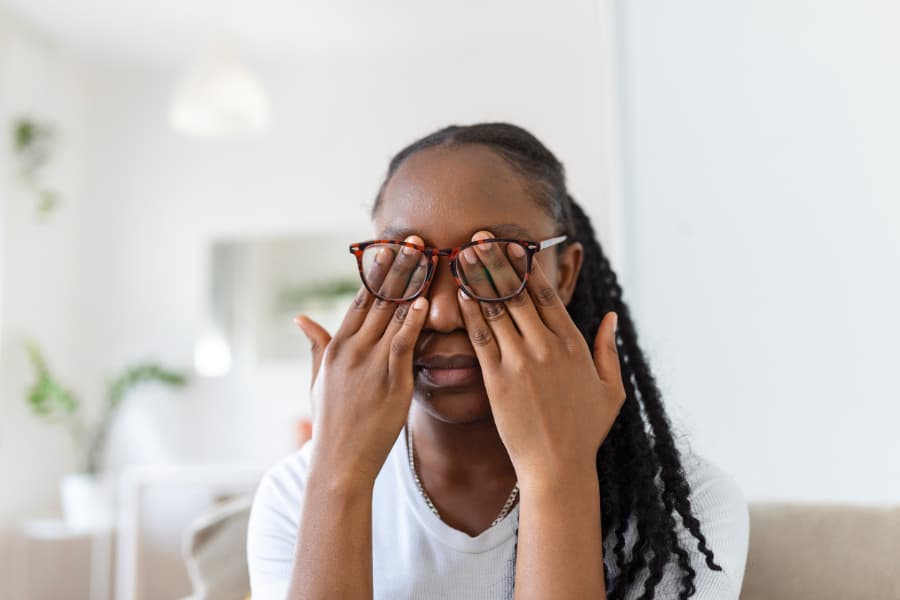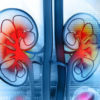Conjunctivitis Treatment in Northern New Jersey
 Eye issues can have a significant impact on our daily lives. Conjunctivitis is a condition that affects our eyes and our comfort. That’s why it’s so important to look to a doctor for conjunctivitis treatment. At Bergen Medical Associates, we have allergy and immunology specialists to help treat this condition. We offer many medical specialties for patients in northern New Jersey.
Eye issues can have a significant impact on our daily lives. Conjunctivitis is a condition that affects our eyes and our comfort. That’s why it’s so important to look to a doctor for conjunctivitis treatment. At Bergen Medical Associates, we have allergy and immunology specialists to help treat this condition. We offer many medical specialties for patients in northern New Jersey.
What Is Conjunctivitis?
Conjunctivitis is an eye infection commonly known as pink eye. This condition involves the inflammation of the conjunctiva, which is a clear membrane lining the eyeball and eyelid. The blood vessels of this membrane can become irritated or swollen, causing them to become red or pink.
In most cases, the infection won’t cause any issues with vision but instead will result in discomfort. Many who suffer from conjunctivitis find symptoms to be irritating but manageable. However, because the condition can be contagious, it’s best to take precautions to protect those around you.
What Are the Signs and Symptoms of Conjunctivitis?
Conjunctivitis has a variety of symptoms, but most people experience some of the following:
- Red or pink in one eye or both
- Itchiness in the eyes
- Discharge from one or both eyes (can cause crust overnight that makes the eyes difficult to open in the morning)
- Tears
- One or both eyes feel gritty
- Photophobia (sensitivity to light)
Some of the symptoms of conjunctivitis are also signs of other, more serious conditions. People who experience eye pain, blurred vision, or the feeling that there is something stuck in their eye should head to an urgent care facility. If a patient has any conjunctivitis symptoms, they should stop wearing their contact lenses immediately. Symptoms that don’t improve over 24 hours may require an appointment with an eye doctor to rule out anything more serious.
What Causes Conjunctivitis?
There are several different types of pink eye. The most common type is viral conjunctivitis, which is caused by the adenovirus or other viruses. It can appear alongside a cold or sore throat. Bacterial conjunctivitis can be the result of improper cleaning of contact lenses. Both types are highly contagious, spreading through direct or indirect contact with the liquid drained by the eye of the infected person.
The condition can also be the result of allergies. Allergic conjunctivitis can be triggered by pollen and other airborne allergens. This type comes with intense itching, tearing, and inflammation, as well as nasal discharge, and is not contagious.
Chemical splashes or foreign objects in your eye can also result in pink eye. While this form of the condition may be simply flushed out, if symptoms persist or if it is a caustic chemical, seek medical attention right away.
Lastly, newborns with blocked tear ducts may experience conjunctivitis.
What Are Treatment Options for Conjunctivitis?
Doctors can diagnose pink eye by simply examining the eyes and asking about the patient’s recent health history. A culture may be taken for lab analysis if the symptoms are particularly severe or if a foreign body has gotten into the eye.
Because the condition is not especially serious, most treatment options are focused on relieving the symptoms to help the patient feel more comfortable. Treatment options include:
- Providing artificial tears
- Cleaning the eyelids using a wet cloth
- Applying a cold or warm compress several times daily
- Antiviral medication (for conjunctivitis caused by the herpes simplex virus)
- Prescribing eye drops such as antihistamines and mast cell stabilizers or medicines such as decongestants, steroids, or anti-inflammatory drops
The patient will need to throw out their old soft contact lenses and hard lenses should be thoroughly disinfected overnight before reuse. In most cases, viral conjunctivitis will need to run its course before exiting the body, which may take two or three weeks.
Schedule an Appointment for Conjunctivitis Treatment Today
While someone experiencing any of the symptoms of conjunctivitis may get better on their own, if symptoms are severe or if chemicals or other foreign substances get in the eye, it’s best to seek medical attention. Because conjunctivitis treatments are noninvasive, there’s no reason to wait to see a doctor.
At Bergen Medical Associates, our team of board-certified physicians can help provide advice, treatments, and more to those in northern New Jersey. Our experience and reputation have helped us become a go-to medical team in the area, and allergy and immunology specialists like Dr. Margaret Co have helped patients get back on their feet. If you have any questions about conjunctivitis, any of its symptoms, or our treatment options, contact us today at one of our convenient locations.












